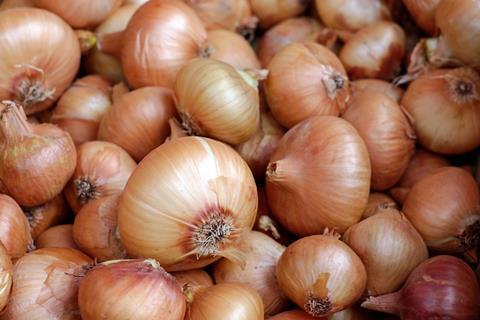Floods have displaced thousands of people in the Senegal River valley and severely impacted cultivation of onions, okra, aubergines, bananas and tomatoes
Over 16,000ha of farmland have been flooded in Senegal, according to official estimates, severely affecting the production of onions, okra, aubergines, bananas and tomatoes, as well as staples including corn and rice.

The floods have displaced more than 56,000 people in the Senegal River valley, according to Le Monde, jeopardising the country’s food security with crops drowning for close to a month, and are expected to lead to an increase in imports.
“The food security of Senegal is at stake,” Boubacar Sall, a business leader in the country’s onion industry, told the French newspaper, adding that he had “never experienced damage on such a scale”.
The northern region of Podor supplies 46 per cent of the country’s onion production and has reportedly been the worst affected by flooding in the Senegal River valley.
With rainfall exceeding the seasonal average by around 30 per cent, according to the Institute for Research and Development, more than 200,000 people have reportedly been directly affected in the Podor region alone.
From Dagana in the northwest to Bakel in the east, decades of drought have put farmers at high risk of flood damage. “Since the 1970s, these areas have been hard hit by global warming and drought,” explained Assane Dione, coordinator of the Group for Research and Achievements in Rural Development, a French NGO operating in Bakel and Matam.
“This has led farmers to move closer to the banks of the river to reduce the cost of irrigation and to take advantage of floods to grow flood-recession crops,” he told Le Monde. “But we were a little quick to forget that these are vulnerable, flood-prone areas. We’re going to need a climate plan and massive investment to turn things around.”
The World Bank has announced over €9.6mn in resources, including essential equipment and supplies, to support affected communities and bolster resilience in the valley, including motorised pumps for water evacuation and agricultural inputs to help growers facing major crop losses.
Keiko Miwa, director of operations for West Africa, stressed the need to invest in resilience for long-term benefits. “Investing in the resilience of communities in the Senegal River Valley means investing in a sustainable and prosperous future for the entire region,” she said.



